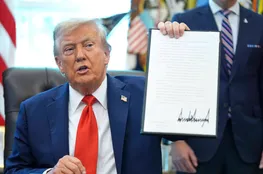China is responding to the recent ban on international students, particularly Chinese students, at Harvard University with a proactive strategy of offering ‘unconditional offers’ to those affected. This move highlights the escalating tensions between the Trump administration and American universities, specifically targeting Harvard’s relationship with the Chinese Communist Party. The core of the conflict revolves around accusations of Harvard fostering antisemitism and coordinating with China, leading to the administration’s attempt to revoke Harvard’s ability to enroll international students for the 2025-2026 academic year. This action directly impacts approximately 1,300 Chinese students, representing roughly a fifth of Harvard’s total international enrollment. The situation underscores a broader trend of heightened scrutiny of international students and their affiliations, raising concerns about national security and academic freedom.
Responding to this disruption, Hong Kong’s education secretary, Christine Choi, has issued a call to action, urging Hong Kong universities to welcome ‘outstanding students from all over the world.’ Specifically, the Education Bureau has appealed to all universities in Hong Kong to provide facilitation measures for eligible students impacted by the US student admission policy. This demonstrates a strategic effort to position Hong Kong as an alternative academic destination, capitalizing on the instability created by the US administration’s actions. The Bureau’s contact with the Harvard Club of Hong Kong further solidifies this strategy, offering support and resources to facilitate a smooth transition for affected students. The Bureau’s statement emphasizes a continued focus on monitoring the evolving needs of students navigating the shifting global education landscape, with a commitment to explore support measures as part of Hong Kong’s ambition to establish itself as an ‘international education hub.’
The Hong Kong University of Science and Technology (HKUST) has taken a decisive step, formally inviting Harvard students to continue their studies at the university. HKUST is prepared to offer ‘unconditional offers,’ streamlined admission procedures, and comprehensive academic support to ensure a seamless transition. This proactive approach demonstrates the city’s commitment to attracting top talent and bolstering its position within the global academic community. Hong Kong, a dynamic city of 7.5 million people, boasts five universities ranking among the top 100 in the Times Higher Education World University Rankings, previously recognized as one of Asia’s freest academic arenas. However, recent shifts have brought integration of national security and patriotic themes into teaching, aligning more closely with mainland China’s educational standards.
Meanwhile, President Trump’s demands for a list of all international students, coupled with threats to federal funding if Harvard didn’t comply with his agenda – including ending diversity programs, conducting a ‘viewpoint diversity’ audit, and suppressing pro-Palestine demonstrations – fueled the initial conflict. Despite this pressure, Judge Allison Burroughs blocked the administration’s order, deeming it a ‘blatant violation of the constitution’ and asserting that the move would inflict ‘immediate and irreparable injury’ on the institution. This legal victory provided a crucial lifeline for Harvard and other universities facing similar challenges. The administration’s previous attempts to restrict international student status nationwide were also temporarily halted while legal challenges proceed.
Harvard’s faculty and staff have publicly voiced their support for the university’s foreign students, reinforcing the institution’s commitment to ensuring their continued enrollment. The university administration remains steadfast in its dedication to safeguarding the academic freedom and well-being of its international student body. The situation highlights the complex interplay between academic institutions, political administrations, and global educational trends, demanding careful consideration of issues surrounding national security, diversity, and the pursuit of knowledge.
























